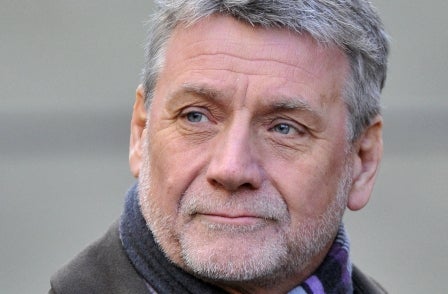
Former News of the World executive editor Neil Wallis has spoken out about the “political arrest” which put his life in limbo for the 21 months he was kept on police bail.
Former People editor Wallis joined the News of the World as deputy editor in 2003 under then editor Andy Coulson before being made executive editor under Colin Myler in 2007.
Wallis lost his job as managing director of PR firm the Outside Organisation following his arrest and revealed in a piece for the Mail on Sunday that he had lost around £200,000 in earnings.
The paper also reports that attorney general Dominic Grieve has privately expressed sympathy for the plight of the many journalists who have been left in limbo as a result of extended periods on bail.
Grieve told a senior politician, the MoS reports, "the problem with these cases is that no-one knows where they stand…everyone is in legal limbo".
Writing in the Mail on Sunday yesterday Wallis noted that two of the 55-plus journalists arrested over the last two years in various hacking-related inquiries have attempted suicide.
He said: “I didn’t reach that point but I can understand how it could happen”.
He added: “I believe most would be shocked to learn that many have been arrested on nothing more than fishing expeditions.”
“Today, in this country, there are more journalists under arrest than there are in Iran. People don’t know because none of us have been able to speak out while under arrest. I am the first.
“In my case, it was blatantly clear police arrested me without any evidence and assumed they would find some form of wrongdoing. They didn’t. But they spent nearly two years trying.”
After a 6am raid on where police “stripped” the office in Wallis’s London home of laptops, phones and notebooks he says he was taken to a police station and repeatedly asked about the hacking of Milly Dowler’s phone and that of the families of the Soham murder victims – even though he was not at the New of the World at the time.
He said: “The officers hadn’t done their basic homework. It was a surreal. I was a trophy arrest. Their modus operandi seemed to be if we ask him enough wide-ranging questions, he will end up confessing to something…
“I kept thinking, so this is Britain? The land of the great British bobby and this is what we’re reduced to? Political arrests?”
Wallis said that because of a change in the law in October, he would have had to pay the cost of his own defence (around £250,000) meaning financial ruin.
He said he now plans to rebuild his career and is studying for an MA in criminology.
“US criminologist Malcolm Feeley coined the term ‘the process is the punishment’. I know exactly what that means. I may have been cleared but I have already served a sentence, lost huge sums of money and watched, helpless, as my family have been put through constant anguish and for what?”
Neil Wallis is speaking at City University debate on 12 March starting at 6.30pm entitled Journalism in the Dock – which is being presented in association with Press Gazette.
Email pged@pressgazette.co.uk to point out mistakes, provide story tips or send in a letter for publication on our "Letters Page" blog

